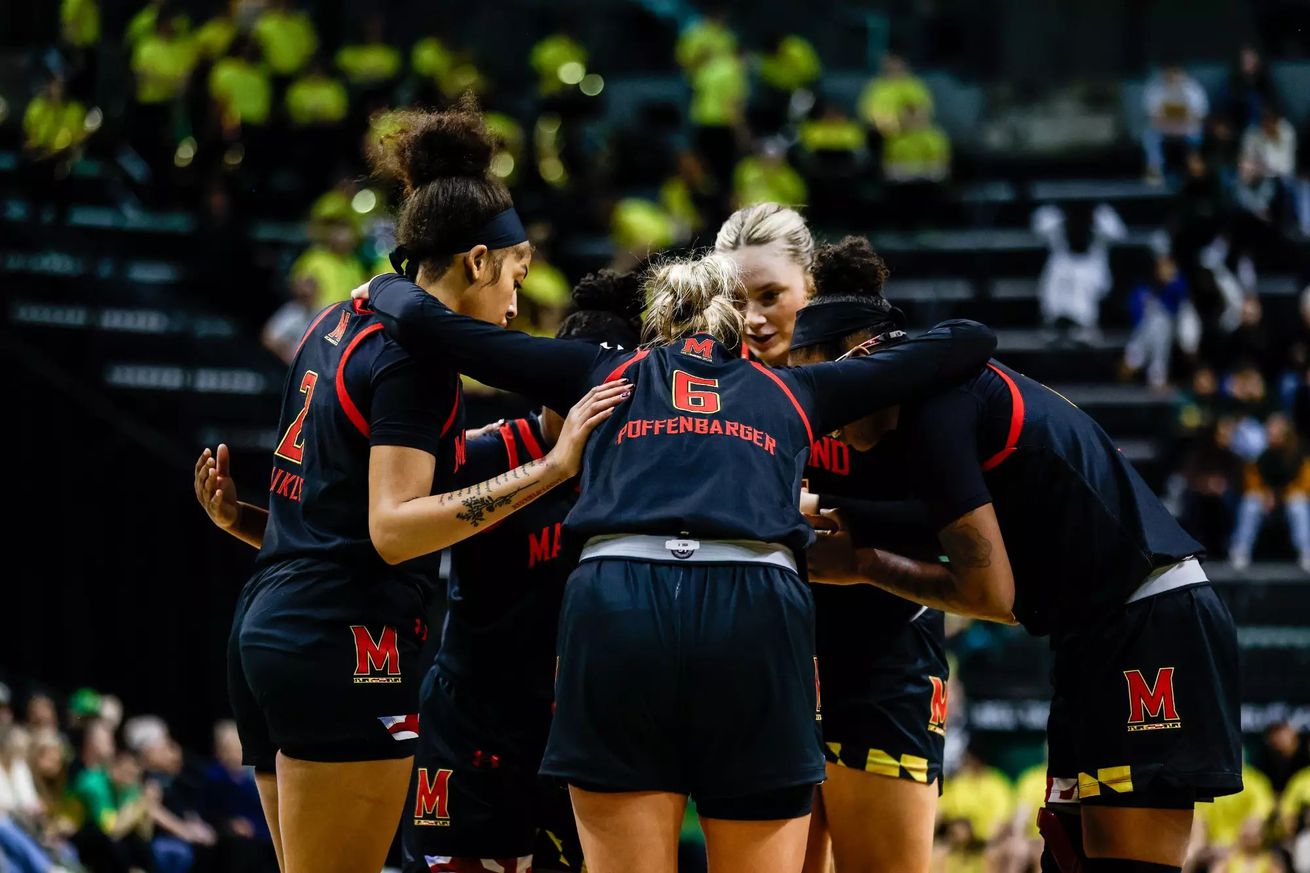
The Terps led for the majority of the game.
No. 16 Maryland women’s basketball made head coach Brenda Frese’s 600th victory a relatively stress-free affair, as the Terps went on the road and put on a dominant performance to take down Oregon, 79-61.
Here are three takeaways from the win.
Maryland responded to adversity
Maryland entered the contest at the low-point of its season, having lost four of its last five games. Most recently, it took a Senior Day loss to Illinois that came down to the buzzer.
It was easy to get the feeling the season could spiral, especially heading to the West Coast against a formidable opponent. Instead, the Terps put up their most dominant performance in over a month against a team that only had one loss at home.
“We know how precious road wins are,” Frese said. “Particularly when you’re dealing with adversity on a really far trip away from home.”
After struggling on the road last season, Maryland has been road warriors in 2024-25, improving to 7-1 away from home. The win also moved Maryland to 8-4 in conference play, slotting it in sixth place in the conference standings for the time being.
“Nobody on our team likes to lose, we’re a really competitive team and that’s what makes us so special,” Allie Kubek said pregame.
Maryland will get a chance to build positive momentum by closing out the road trip with a win over Washington Sunday.
The Terps overcame quiet nights from normal contributors
If one looked at the scoreboard on Thursday night, they’d likely assume Shyanne Sellers and Christina Dalce played an important role in the victory.
They would be wrong, though, as Sellers was held scoreless and Dalce scored four points in just eight minutes of action. For the second straight game, Mir McLean also played just four minutes. She didn’t record a stat against the Ducks.
“We’re really looking for consistency at this point, we’re in February,” Frese said.
Frese cited subpar defensive possessions as part of the reason that Dalce didn’t see much of the floor. She has been direct about being frustrated with McLean’s effort in practices and games recently.
Meanwhile, Sellers played 23 minutes and is still working her way back from a knee sprain that was reaggravated.
“We’re trying to get [Sellers] to 100%,” Frese said. “She’s nowhere near that yet. Fortunately for us, other players are stepping up and it’s no fault of her own.”
In place of Dalce and McLean, Saylor Poffenbarger and Kubek had a good night in the frontcourt, combining for 24 points and 16 rebounds on 9-of-12 shooting from the field.
Maryland’s backcourt was dominant
When Bri McDaniel went down with a season-ending knee injury, it was instantly apparent she had left a large hole in Maryland’s roster.
In an attempt to fill that hole, the team has asked for more from its other two primary guards: Sarah Te-Biasu and Kaylene Smikle. They both delivered a sensational performance against Oregon.
Te-Biasu notched 26 points on 9-of-11 shooting from the field, while Smikle did her best to keep up, scoring 21 points on 5-of-13 shooting. Te-Biasu added four assists, while Smikle grabbed nine boards.
“Sarah had a monster game for us, which we needed … as we’re trying to get [Sellers] back into the fold, and [Smikle] as well,” Frese said.
After being one of the best scorers in the conference during her time at VCU, Te-Biasu took on a more passive role early in the season with the Terps. As of late, though, she has leveled up on the offensive end, scoring double-digit points in five straight games.
Smikle has been an offensive force, but has struggled a bit since her role increased in McDaniel’s absence. The win represented a return to form.
“We focus on taking it game by game,” Smikle said. “We don’t like to look too far ahead.”